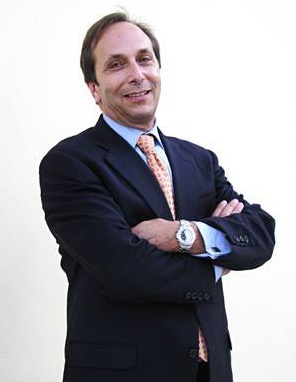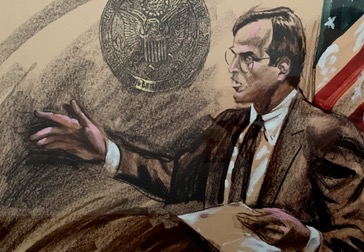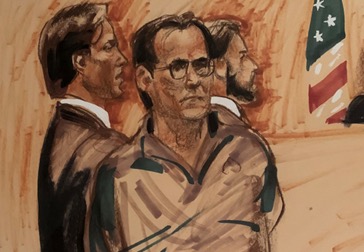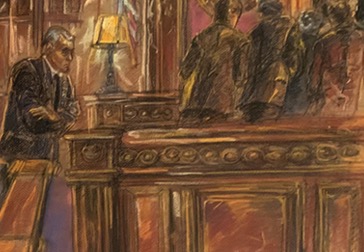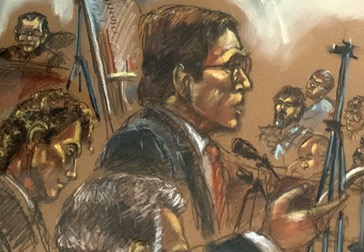Italian fugitive used Miami firms to set up offshore
When two Miami firms set up an offshore company for Giuseppe Donaldo Nicosia in 2011, they didn’t know the Italian businessman would be accused of masterminding a $48 million tax fraud three years later.
Or that one of his alleged partners in the scheme, an Italian senator and ally of former premier Silvio Berlusconi, had ties to the Sicilian Mafia that would land him seven years in prison. And they may have been surprised to learn Nicosia admired Benito Mussolini so much that he inked his right arm with a tattoo of the Latin word Dux (“Leader”), a title used by the fascist dictator and Adolf Hitler ally.
But the case of Nicosia — who spent lavishly on Rolls Royces, Harley-Davidsons, thoroughbred horses and two apartments in New York City — illustrates how easy it is to manipulate the shadowy but legal world of offshore companies.Last year, the Miami Herald and the International Consortium of Investigative Journalists received a massive leak of files from inside Mossack Fonseca, a Panamanian law firm that sets up offshores for the rich and powerful.
The so-called Panama Papers show that Nicosia asked MF’s Miami office and local law firm Roca Gonzalez to establish an opaque network of shell companies.
He then appeared to use those secret companies to launder his profits by selling and reselling his New York properties, according to Italian prosecutors and the leaked documents.
In 2014, three years after MF and Roca set up the firms, Italian police issued an arrest warrant for Nicosia. They said he and former Italian Senator Marcello Dell’Utri were part of a criminal ring called “the carousel.”
The group allegedly bought and sold advertising space in Europe using companies it controlled and then claimed fraudulent value added tax credits. It was a dry-sounding but lucrative scheme that lasted from 2005 to 2011, prosecutors say. During that time, the two allegedly reaped tens of millions in profits. Nicosia had already fled his home in Bilbao, Spain, when police came looking. The 60-year-old traveled to South Africa, Brazil and Panama before dropping off the map, sources say.Earlier this year, a Milan prosecutor, Sergio Spadaro, indicted Nicosia and Dell’Utri. A judge will decide during a hearing on May 10 whether they must stand trial.
Peeling back the curtain
Here’s how the real estate shell game seemed to work before the alleged tax fraud unraveled: In 2011, Nicosia sold his apartments on the 12th floor of the CitySpire high-rise in Manhattan’s Hell’s Kitchen neighborhood to a Delaware company called Amadocia. He received $3.2 million for the deal, exactly what he paid in 2006, an MF record states. The leaked record shows that after paying fees and taxes, Nicosia cleared $2.87 million in “seller’s proceeds.”
To the public, the identity of the buyer remained a secret. Delaware essentially acts as a domestic offshore haven for corporations. By law, Amadocia’s owners didn’t have to reveal their names. But the Mossack Fonseca files show Amadocia was controlled by Darion Trading, an offshore company registered in the British Virgin Islands, where company owners are also private. MF had set up Darion Trading. And who owned the offshore?
Nicosia himself, according to a leaked corporate registry. The money that the records say Nicosia paid himself was now clean and ready to enter the financial system. Antonio Roca, the Miami attorney who handled the transaction, said he could not comment on the details of the case because it would violate attorney-client privilege.
His firm “assisted Mr. Nicosia with the transfer of his NY properties into a legally permitted tax structure to protect against U.S. estate tax for foreigners,” Roca said. “All U.S. laws and tax regulations were followed.” In general terms, he said, closing statements recorded for tax purposes may appear to show cash changing hands, even when it doesn’t and what is actually represented is the fair market value of the apartment.
And Roca added: “This office assisted Mr. Nicosia in 2011 when there were no charges pending against him.” The New York transaction wasn’t totally smooth.
Before it closed, Mossack Fonseca had been pressing Nicosia’s Miami attorneys for more documentation on where the Italian’s wealth came from. (The exchange took place before Nicosia was criminally charged.) Olga Santini, who ran MF’s Miami office, begged them for more cooperation. “I am trying to have my head office make an exception on this,” she wrote in a leaked email to Nicosia’s attorneys.
One attorney— Eric Gonzalez, also of Roca Gonzalez — replied: “As you know, this client travels extensively and prefers not to receive sensitive documents in foreign jurisdictions. This has been the complication.” Another attorney at Roca said Nicosia was tired of waiting and wanted Mossack Fonseca to resign so a new offshore firm could take over.
Eventually, the transaction went through with MF still aboard. The firm and Santini said they couldn’t comment on individual cases. Property is a prime target for money laundering, experts say. “Real estate is a high-value, single transaction,” said Richard Kando, managing director of Navigant, a consultancy that advises financial firms on compliance. “It’s much easier than dealing with a number of $5,000 transactions. … Saying you sold your apartment in New York City for $3.2 million doesn’t really raise eyebrows when there are reports of $40 million apartments being sold.”
Meanwhile, Italian prosecutors were closing in. In March 2015, they asked the U.S. Department of Justice to seize the New York apartments. After a year of waiting, a federal judge in Washington D.C. approved the seizure. It was too late.
Nicosia had already sold the properties. Six months earlier, he closed on a $3.72 million sale, this time to another Delaware company called Square Campus Global Management, according to New York City property records.
Secrecy rules
Delaware’s corporate secrecy laws serve to hide the owner of Square Campus. The company isn’t mentioned in the Panama Papers leak, so there’s no way of knowing the owner. It could be Nicosia or one of his associates, or an independent third party.
“Shell companies facilitate domestic and international corruption and other crimes,” said Shruti Shah, vice president of the U.S. chapter of Transparency International, a global anti-corruption group. “Who benefits from these anonymous companies? People with something to hide.”
Shah said shell companies in all jurisdictions should be required to disclose their true, or “beneficial,” owners. States such as Delaware and offshore havens like the British Virgin Islands collect fees on each company incorporated within their borders. They have little financial incentive to alter their disclosure rules. The U.S. Department of Justice confirmed that Nicosia was able to sell his apartments under its nose. Restraining assets at the request of a foreign country requires a court order,” said DOJ spokesman Peter Carr. “At times, as in this case, the government is unable to secure the order prior to the sale of an asset. When that occurs, the department works with its foreign partners to pursue the proceeds of the sale.”
Carr declined to comment on whether U.S. authorities were going after the $3.72 million Nicosia apparently received from Square Campus. Joan Greenberg, a New York attorney who represented Square Campus in the deal, did not respond to phone calls. Roca Gonzalez said it did not help Nicosia resell the properties and no longer works with him.
http://www.miamiherald.com/news/business/real-estate-news/article69251392.html
By Nicholas Nehamas and Leo Sisti

